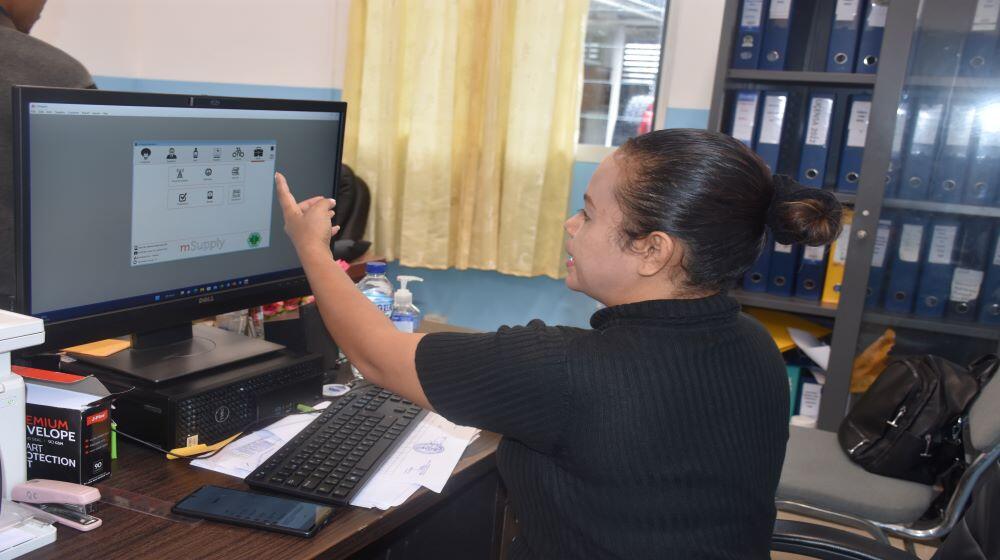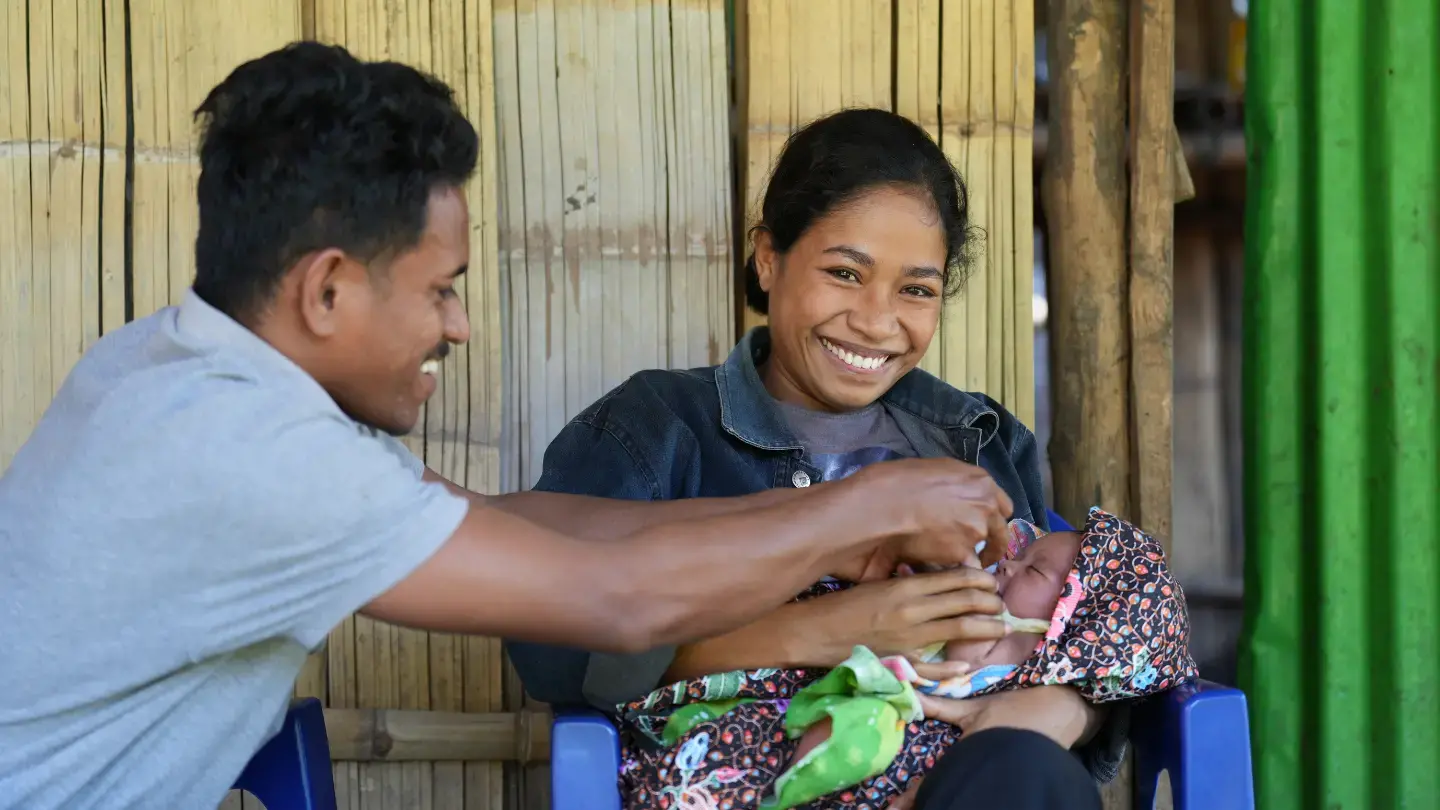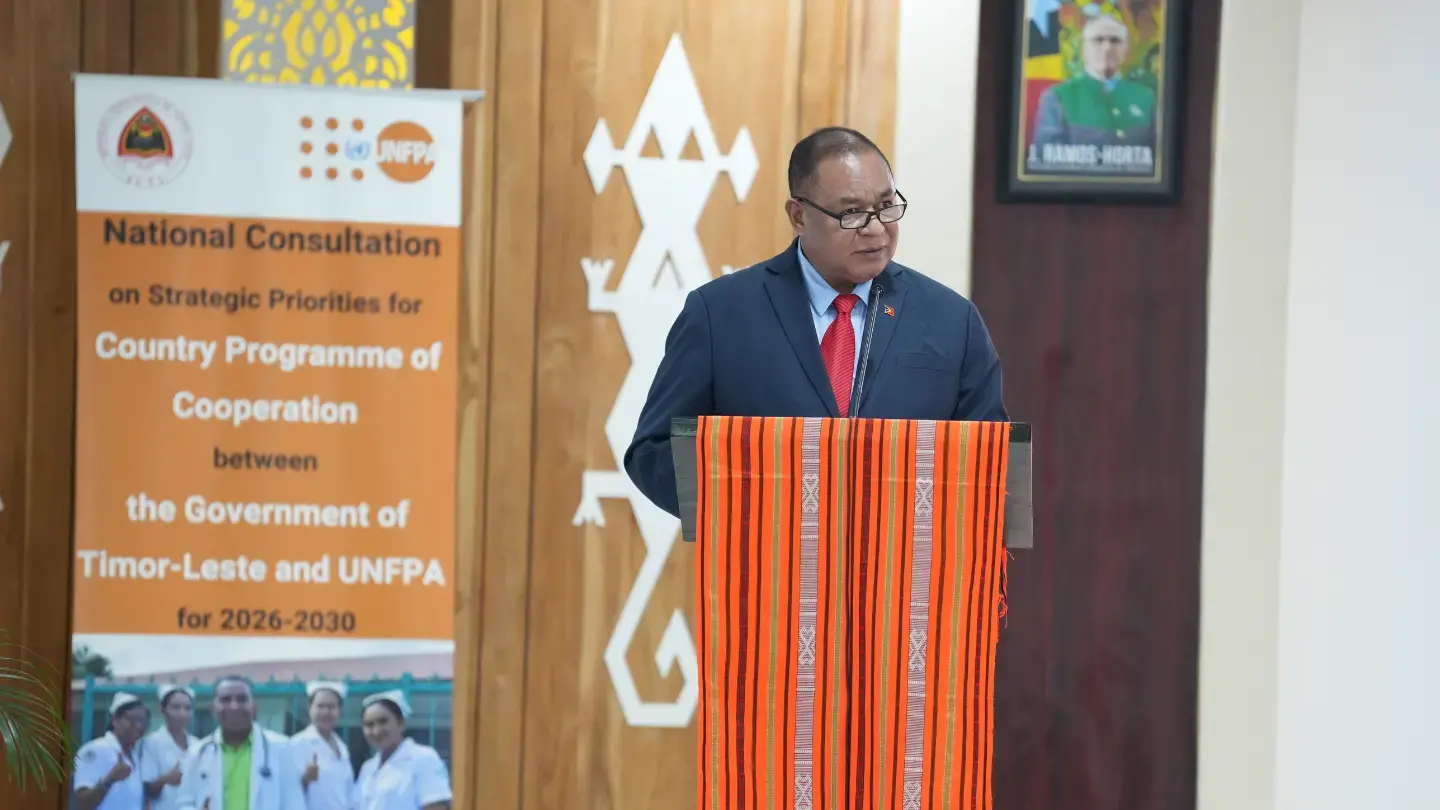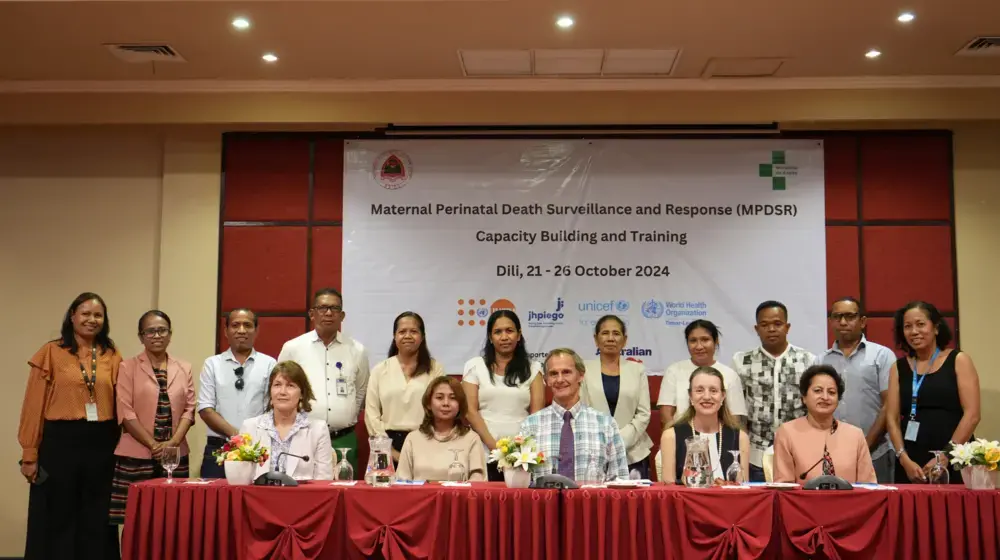Dili, December 23, 2022 -- Despite internet and connectivity challenges, the mSupply, an electronic logistics management information system, has helped Timor-Leste Medical and Pharmaceutical Supply Agency (SAMES) and the National Hospital (HNGV) to manage over USD 10 million in medical supplies stock by facilitating procurement, storage, ordering and distribution.
The mSupply system is part of UNFPA Supplies program -- the world’s largest programme for contraceptive procurement and demonstrates UNFPA’s commitment to strengthen health-care systems and supply chains in delivering essential reproductive health commodities to women, girls and communities in Timor-Leste.
The UNFPA Supplies partnership in Timor-Leste is funded by Australia’s Department of Foreign Affairs and Trade (DFAT).
In Timor-Leste, the implementation of the mSupply system now in phase II of the project, has streamlined supply chain processes and accelerated ordering process for the Government of Timor-Leste to receive and record stock upon arrival.
“My role in using the mSupply system is to authorize requests and verify commodities ordered by hospitals and community health centres. We now do not make requests manually. With mSupply we are now making requests electronically through the system. It is much easier to monitor items ordered and it also helps to reduce time wasted filling papers,” said Domingas da Costa Compos, Director of Quality Control, National Laboratory.
Through the mSupply system, hospitals and community health centres in Timor-Leste can now place orders directly and request supplies from SAMES – who recently signed a memorandum of understanding (MoU) on Third Party Procurement (TPP) with UNFPA.
The MoU gives the government of Timor-Leste access to UNFPA’s global supply network to procure lifesaving sexual and reproductive health commodities.
According to Rita Ataide, Head of Pharmaceutical Planning and Management of Acquisition, Directorate of National Pharmacy, mSupply is a good system that facilitates requisitions for hospitals and municipalities but there is still need for joint training to improve efficiency and coordination among users.
“The system currently has limited access to information on stock available at SAMES.
“We only have access to request but we are not able to see stock on hand unless we use another web-based application that has internet connectivity challenges,” observed Rita Ataide in her office in Dili.
Additionally, users have suggested improvements and have called for need to invest in staff training, implementation and maintenance of the system and reliable funding options. Currently, the system is used by 5 hospitals, 14 district health offices and community health centers and National Laboratory in Timor-Leste to order for medical supplies.
A training for all key stakeholders using the system is scheduled to start in early 2023 to train relevant staff from health posts and relevant institutions at district level.
Lucindo Novo, a pharmacist at Veracruz Pharmacy and Veracruz Community Health Centre in Dili, was among the first to be trained using mSupply in 2016 and has trained other staff on using the system since then.
“I use mSupply on a daily basis. It is easy to make a request through the system. I am glad that the process is faster than before when we ordered directly from the warehouse and had to fill a lot of forms,” said Lucindo Novo.
Because the system has different access rights and roles depending on responsibilities, there is need for updating the system to respond to current needs of users.
“The system is not fully integrated. It does not link reports from SAMES warehouse to the pharmacy and I still need to do paper work manually. The stock is not automatically updated in the system when a request is made,” said Carlia Araujo, a pharmacist at Veracruz Community Health Centre in Dili.
According to Dr. Domingas Bernardo, UNFPA Assistant Country Representative in Timor-Leste, there is need to integrate mSupply with District Health Information System (DHIS2) and other online web-based system interventions to strengthen service delivery across the health system in the country.
“UNFPA has supported the Government of Timor-Leste with the procurement of health commodities – including procurement of reproductive health commodities and maternal health medicines since 2003. During the expansion phase of mSupply to all community health centres, UNFPA will continue to provide technical support in collaboration with partners and oversight to ensure the system is fully integrated,” said Dr. Bernardo.
For more information, contact:
Suleiman Okoth
Communications and Programme Support Specialist
United Nations Population Fund (UNFPA), Timor-Leste
Mobile: +67075169796, Email; okoth@unfpa.org





